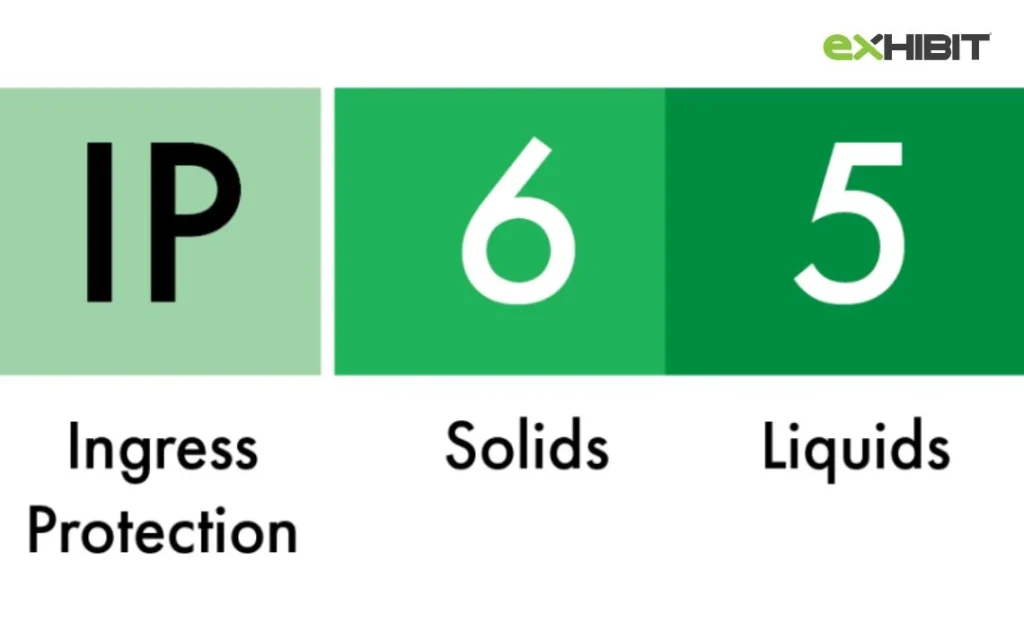Ever noticed the term “IP67” or “IP68” on your smartphone or smartwatch and wondered what it means?
That label refers to the device’s IP rating, which indicates its resistance to dust and water. Whether you’re buying a new iPhone, smartwatch, or Bluetooth speaker, understanding IP ratings is crucial if you care about durability and protection especially when reading any trustworthy gadgets review.
In this guide, we’ll explain the IP rating full form, break down the rating system, explore iPhone IP ratings, and help you choose the right devices based on your needs.
In this guide, we’ll explain the IP rating full form, break down the rating system, explore iPhone IP ratings, and help you choose the right devices based on your needs.
IP Rating Full Form: What Does It Mean?
IP rating stands for Ingress Protection rating. It is an internationally recognised standard defined by the International Electrotechnical Commission (IEC). This rating tells you how well a device’s enclosure protects it from dust, dirt, and moisture.
An IP rating is usually composed of two numbers:
- The first digit shows protection against solid objects (dust, dirt, etc.)
- The second digit shows protection against liquids (water, moisture, etc.)
For example, a phone with IP68 is completely dustproof and can withstand water immersion beyond 1 meter.
Breaking Down the IP Rating Numbers
First Digit: Protection Against Solid Particles
| Digit | Protection Level | Description |
|---|---|---|
| 0 | No protection | No protection against solids |
| 1 | Large objects | Hands or large body parts |
| 2 | Medium objects | Fingers or medium-sized tools |
| 3 | Small objects | Small tools or thick wires |
| 4 | Fine particles | Most screws, nails, and wires |
| 5 | Dust-protected | Limited dust ingress, no harm caused |
| 6 | Dust-tight | Fully protected against all dust |
Second Digit: Protection Against Liquids
| Digit | Protection Level | Description |
|---|---|---|
| 0 | No protection | No protection against liquids |
| 1 | Dripping water | Vertically falling water drops |
| 2 | 15° angled dripping water | Drips at up to 15° angle |
| 3 | Water spray | Water spray up to 60° angle |
| 4 | Water splashes | Splashes from any direction |
| 5 | Water jets | Low-pressure water jets |
| 6 | Powerful water jets | High-pressure water jets |
| 7 | Immersion up to 1 meter | 30 minutes in water at 1-meter depth |
| 8 | Immersion beyond 1 meter | Extended submersion in deeper water |
| 9K | High-pressure water jets | High-pressure, high-temperature water jets |
iPhone IP Rating: How Waterproof Is Your iPhone?
Apple’s iPhones come with different IP ratings depending on the model. Here’s a breakdown of the iPhone IP rating list:
- iPhone 7 / 8 / SE (2nd Gen) – IP67: Dust-tight and water-resistant up to 1 meter for 30 minutes.
- iPhone XS / XR / 11 / 12 / 13 / 14 – IP68: Dustproof and resistant to submersion beyond 1 meter.
- iPhone 15 Series – Also rated IP68, but Apple has enhanced water resistance levels for added durability.
✅ Tip: Even if your iPhone has a high IP rating, avoid charging it while wet or exposing it to salt water.
Common IP Ratings and What They Mean
| Rating | Meaning |
|---|---|
| IP67 | Fully dustproof and submersible in water up to 1 meter for 30 minutes |
| IP68 | Dustproof and safe for deeper, longer water submersion |
| IPX4 | Protected against splashes from any direction |
| IPX7 | Handles temporary immersion, ideal for fitness trackers and earphones |
Why Is the IP Rating Important?
Understanding the IP rating full form helps you buy gadgets that match your lifestyle:
- For smartphones & iPhones: Look for IP67 or IP68 if you’re often around water or use your phone in the rain.
- For outdoor gear: Wireless earbuds, smartwatches, and speakers should have IPX5 or higher.
- For rugged use: Power tools and industrial devices often require IP65 and above to withstand harsh environments.
Limitations of IP Ratings
While a high IP rating suggests strong protection, it doesn’t mean your device is completely waterproof or indestructible. Over time:
- Water seals may wear out.
- High-pressure water (like showers or jets) can cause damage.
- Saltwater and pool chemicals may corrode internal components.
So even with IP68, handle your gadgets with care!


